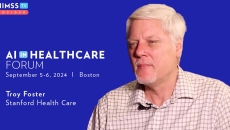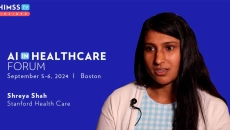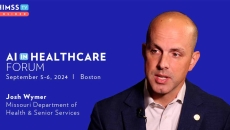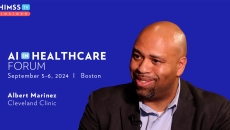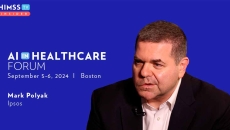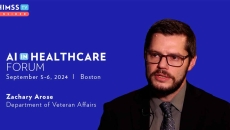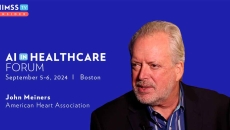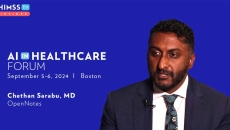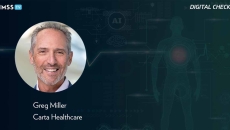HIMSS TV
Troy Foster, Stanford Health Care's director of digital health, discusses expanding use cases for AI among the health system's clinicians and nurses to reduce workload - and how vendors can help lower patient risk.
Shreya Shah, medical informatics director at Stanford Health Care, discusses the health system's use of genAI for patient message replies and ambient AI scribes to reduce the clinical documentation burden.
Josh Wymer, chief health information and data strategy officer at the Missouri Department of Health and Senior Services, explains how the state ensures trust in the public-facing chatbot it offers its citizens.
Jonathan French, senior director of public policy at HIMSS, says the organization hopes its members participate in the public policy development process and understand the real-world ramifications of that policy.
Albert Marinez, chief analytics officer at Cleveland Clinic, discusses how genAI is an order of magnitude higher than traditional strategies and how a lot of problems can be solved with traditional machine learning and predictive analytics.
Mark Polyak, president of analytics at Ipsos, says patients are comfortable with AI for administrative tasks and the promise of faster diagnosis, but it becomes an issue when human involvement is taken away and AI is asked to think on its own.
Zachary Arose, healthcare technology management chief at the Dayton VA Medical Center, says the VA has integrated an AI algorithm for early detection of lung nodules. AI is also adding administrative and bureaucratic efficiencies.
AI has the transformational capability to improve the quality of care and impact research, like the manual review of science, says John Meiners, chief of mission-aligned businesses and healthcare solutions for the AHA.
Dr. Chethan Sarabu, AI and informatics strategist at OpenNotes, discusses how genAI and LLMs are enabling a new level of patient empowerment for direct use of AI in their care across a range of tasks, including questions about their diagnosis.
Over the next year health system IT leaders can expect real and pragmatic applications of AI beyond the experimentation mode into real projects with real value, says Greg Miller, vice president of business development at Carta Healthcare.

